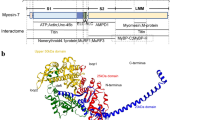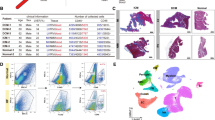Abstract
A precise organization of contractile proteins is essential for contraction of heart muscle. Without a necessary stoichiometry of proteins, beating is not possible. Disruption of this organization can be seen in diseases such as familial hypertrophic cardiomyopathy and also in acquired diseases. In addition, isoform diversity may affect contractile properties in such functional adaptations as cardiac hypertrophy. The Mexican axolotl provides an uncommon model in which to examine specific proteins involved with myofibril formation in the heart. Cardiac mutant embryos lack organized myofibrils and have altered expression of contractile proteins. In order to replicate the disruption of myofibril formation seen in mutant hearts, we have developed procedures for the introduction of contractile protein antibodies into normal hearts. Oligonucleotides specific to axolotl tropomyosin isoforms (ATmC-1 and ATmC-3), were also successfully introduced into the normal hearts. The antisense ATmC-3 oligonucleotide disrupted myofibril formation and beating, while the sense strands did not. A fluorescein-tagged sense oligonucleotide clearly showed that the oligonucleotide is introduced within the cells of the intact hearts. In contrast, ATmC-1 anti-sense oligonucleotide did not cause a disruption of the myofibrillar organization. Specifically, tropomyosin expression can be disrupted in normal hearts with a lack of organized myofibrils. In a broader approach, these procedures for whole hearts are important for studying myofibril formation in normal hearts at the DNA, RNA, and/or protein levels and can complement the studies of the cardiac mutant phenotype. All of these tools taken together present a powerful approach to the elucidation of myofibrillogenesis and show that embryonic heart cells can incorporate a wide variety of molecules with cationic liposomes.
Similar content being viewed by others
Author information
Authors and Affiliations
Additional information
Accepted: 24 September 1999
Rights and permissions
About this article
Cite this article
Zajdel, R., McLean, M., Isitmangil, G. et al. Alteration of cardiac myofibrillogenesis by liposome-mediated delivery of exogenous proteins and nucleic acids into whole embryonic hearts. Anat Embryol 201, 217–228 (2000). https://doi.org/10.1007/s004290050312
Issue Date:
DOI: https://doi.org/10.1007/s004290050312




